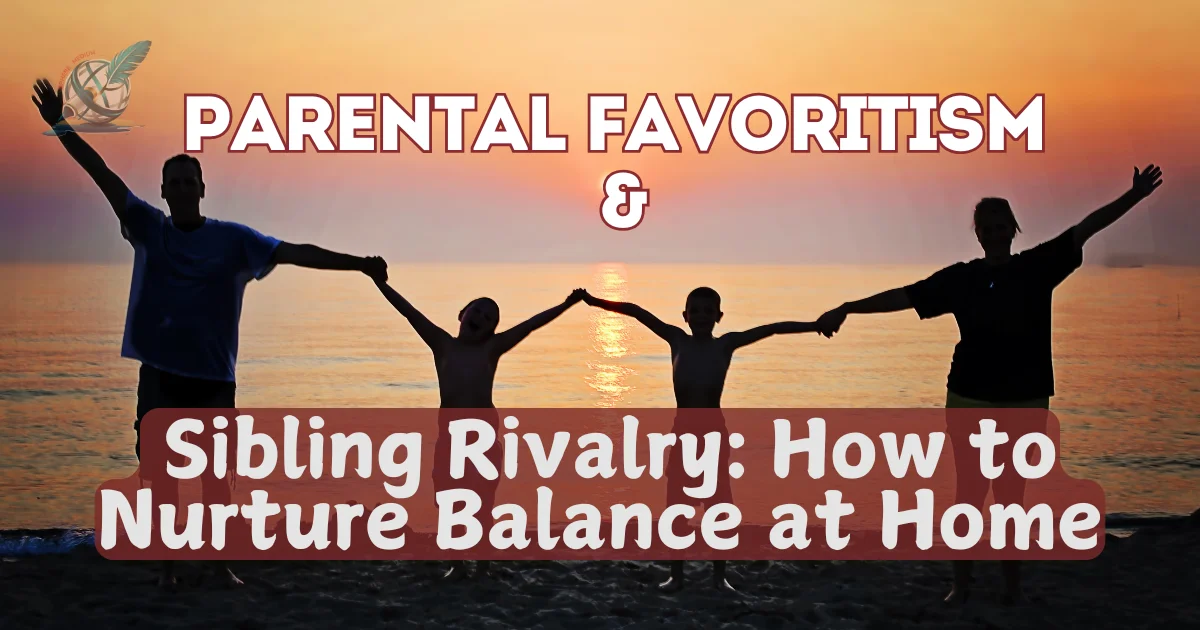Introduction
Parents having a favorite child is least talked about – in fact, it’s considered taboo, whereas this is very common. Many parents blatantly deny this and insist they love their children equally. However, lived experiences and a lot of research state otherwise.
Having a favorite child does exist in some families; subconsciously or intentionally, it is happening. This can be very challenging for the “other” child or children, creating;
Sibling rivalry
Always trying to win parental affection
An emotionally and mentally drained child
These can last right into adulthood, causing low self-esteem and many other mental health issues.
At Sphere Medium you will find out the reasons behind parents having favorites, how sibling rivalry begins, the consequences, and how this effects the child’s self-esteem and emotional well-being.
Parents & their favorite child
Favoritism does happen, and it’s not as uncommon as you may think it is.
Favoritism does not always mean that one child is loved more than the others; rather, it can stem from various factors such as personality compatibility, the child’s achievements, or the child’s position in the birth order (e.g., oldest or youngest). Parents tend to be more inclined toward that child who demands less, who is compliant, and who seeks less attention.
Unconsciously, it may be, but it is happening more than you think and is mostly mistaken for easy parenting. Favoritism, as subtle as it may be, a child has incredible perceptiveness and can pick up easily how all siblings are treated differently. The effects this has on the child’s self-esteem are one thing, but the stress on the family relationships is another, pushing them to adopt resentful behavior and sibling rivalry.
Sibling rivalry can be fuelled by a number of things, including
Favoritism – when a child picks up on favoritism, this can turn the child toward destructive behavior and jealousy. This can cause conflict with the parents and eventually resentment toward the preferred sibling.
Comparison – This one hits so hard like a ton of bricks. Comparison of behavior: your sister looks a lot better in that same dress you’re wearing. Or, how well the other sibling is doing at school, and you should be more like your brother or sister, are a few of many heartbreaking statements parents often use, making the child feel inadequate and leaving them competing for recognition and affection.
Birth Order and Age Differences – Older siblings may feel burdened by responsibility, while younger siblings may feel overlooked or infantilized. Each child’s unique experience of family life creates room for misunderstandings and competition.
Differences in Interest and Abilities – When one sibling excels in academics or sports and the other struggles, it can create an imbalance in how parents distribute praise.
Lack of parental attention – Children constantly seek their parents’ support and attention. When one child gets more attention because of health problems or accomplishments, the others may feel ignored, which can lead to competition.
Parental favoritism
Favoritism has long-term effects on both favored and unflavored children. Here are some of the most significant effects of parental favoritism;
Resentment and low self-esteem – the child who doesn’t feel liked may grow angry at both the parents, leading to insecurity issues and feeling insignificant, which can prolong into adulthood.
Overconfident – this tends to happen with the favoured child. They begin to feel entitled and feel they can have a say in every conversation at home regarding the other children. This plays havoc on the unfavoured child.
Long-Term Sibling Conflict – Favoritism causes distance between brothers and sisters, which can lead into adulthood, causing them to seperate.
Parents who have both a favored child and a not so favored child can emotionally damage their children.
1 – The favored child will always have high expectations and hopes right into adulthood.
2 – The unfavored child will suffer from mental health issues; along with that, trusting someone would be difficult.
As mentioned many times in this blog, children can become very anxious, depressive, or have behavioral issues this can affect both the favored and unfavored child.
How to Cut Down on Favoritism and Siblings from Fighting
- Children should be praised for their success and achievements without comparison. Encourage your children to celebrate their individuality.
- Give each child equal time and attention. Aim to spend valuable time with each child.
- Always give praise and feedback to all your children when they are alone.
- Comparing – do not compare your children in public or at home in front of anyone. Always treat them individually. Remember, each child is unique and owns their personality.
- Promote cooperation and teamwork. Do tasks with your children that encourage teamwork instead of competition. Family traditions, group events, and having common goals can help siblings get along better.
- Identify and deal with competition. If competition is a problem, talk about it with your child and help them work out their differences.
- Children always seek parental approval and praise for their small achievements, and parents should provide this support to them and strictly praise them for their uniqueness and not compare.
My thoughts
No matter how hard we parents try or do it without even realizing it, there will always be one child that a parent will feel closer to. This absolutely does not mean the other children are not loved; of course they are, but as a parent, this should not become a habit, as this can ruin children’s self-esteem, mental health, and overall personality. In a family, it’s in the hands of the parents to keep everyone together by creating better bonds and making all their children feel that they’re loved equally.
Thanks for reading.
When writing this blog, I used a lot of different sources to make sure it was accurate and complete. Please let me know what you think in the comments section below. Keep visiting Sphere Medium.
FAQs
What is parental favouritism?
Having a favorite child is parental favouritism, there can be many reasons why this can happen.
One of them being a child doing exceptionally well at school.
How can parents avoid favouritism?
Parents may have a favorite child without even realising this. Spending equal amounts of time with each child, praising all children as an individual, and encouraging them to meet goals and aspirations can help avoid this.
How does favouritism effect a child?
It can play havoc with their confidence and mental health. It can also prolong into their adulthood causing great self esteem issues.
Are favourite children effected in any way?
Yes, they have high expectations and have a sense of entitlement.
Useful Links

Writer | Scribbler of Dramatic Verses | Zoophilist | Empath |In the midst of writing my very first Novel | Mens Skincare Coming Soon | Husband’s Right Hand



1 Comment
“I wish parents would read this and implement it in their family lives. It would make things so much easier!”